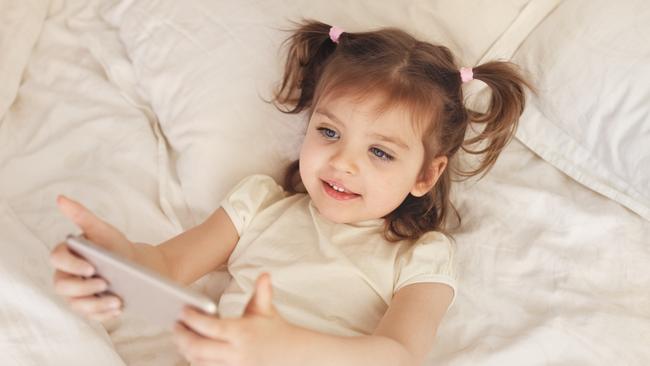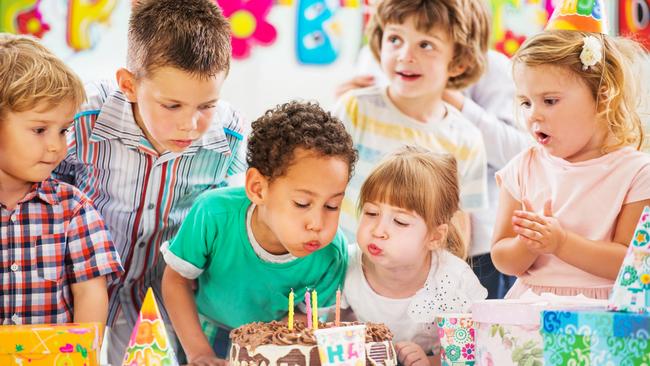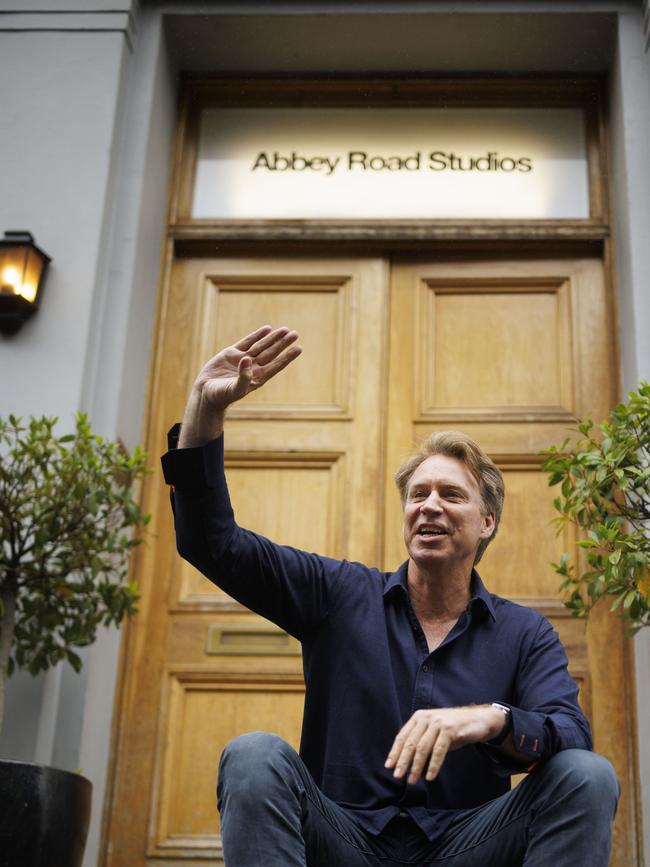What a child’s birthday party taught me about Albanese’s social media ban – and my mobile phone
Watching a parent glued to their phone at a birthday party, then seeing what they posted, made me think about how a social media ban for adults, not just kids, might be a good idea.

The Albanese government’s landmark ban of social media for children under 16 doesn’t go far enough.
Anyone with young children knows they learn by mimicry. They are very much monkey see, monkey do. And as I was reflecting over the weekend on the government introducing the world’s strictest laws on social media usage on children, one scene kept replaying in my mind. It made me think that parents should perhaps consider a form of social media ban themselves, and park their phones.
A few weeks ago, I was at a child’s party, and one of the other parents was on their phone for much of the time. Both my wife and I attempted separately to engage in conversation but received minimal responses. Parenting is hard and there could have been a host of reasons why this parent was on their phone for much of the party.
Later that evening, I found myself mindlessly scrolling on social media and stumbled on that parent’s account. They had posted pictures of that day and viewing them was like walking into an alternative universe. What was presented on social media was divorced from reality. A glossy theatrical presentation – to paraphrase a reviewer’s opinion of Gene Kelly’s performance in 1954’s Brigadoon – that was as thin and metallic as a nail.

And this is one example of how toxic and harmful social media can be. What you are consuming isn’t reality. There are lots of examples of how social media can foster connection and a sense of community. But there are plenty of others – like at this party – that prioritise a world encased in a smartphone in an effort to stimulate dopamine rather than finding joy and connection in the real world.
This is why I’m worried about the effect social media has on the developing and impressionable minds of children, and why I fear the ban in its current form will be ineffective.
I feel rotten when I’m with my three-year-old son and find myself staring at a screen instead of looking up and enjoying these special and fleeting moments.
While a child is playing, enjoying themselves at a party with other children, or engaged in some other carefree activity, but their parent’s eyes remain fixed on their phone, what message does that send? The phone, which is commanding so much of a parent’s attention, is more important than the child? The social media realm is better than actual reality?

Then if a child wants to see what’s so important, they cannot engage. That’s adult stuff now – well at least for children under the age of 16. You can start to quickly see the ban becoming porous.
Now there are plenty of things children can’t do that their parents can. Smoking is one that immediately springs to mind, but that has been coupled with government intervention and a strong and effective education campaign.
I remember the glorious Marlboro advertisements in the 1980s, which were then banned. I remember when my parents put a ‘‘welcome to our smoke free home’’ sticker on our door in the early 1990s, and soon found that my mother’s uncle didn’t visit us anymore. I remember at university, going out to pubs and coming home, my clothes reeking of cigarette smoke.
And now, I see the dark looks that are shot at people – adults – when they light up in public.

I was speaking to Giles Martin – the son of The Beatles producer George Martin – a couple of months ago, and he said smart phone and social media use would go the same way as smoking. “I think we’ll look back on phones and a lot of this stuff … almost like smoking. I think we have way too much input into our brains that have stopped us from thinking in some way,” Giles told me.
And this is also the concern about the social media ban in its current form, that it will stop Australia’s children from thinking critically.
Australian Human Rights Commissioner Lorraine Finlay and National Children’s Commissioner Anne Hollonds attempted to warn the government, saying a social media ban “oversimplifies a complex issue” and parents, teachers and caregivers needed more support to educate children.
“Social media can cause real harm and has already had a devastating impact on too many families across the country. But instead of masking these problems with a ban, we need to treat the underlying causes,” Finlay and Hollonds said. “Improving education around digital literacy and online safety in schools will equip young people with the tools they need to navigate social media responsibly.
“Our kids need to be supported to think critically about what they see online and how they engage with social media. Parents and teachers, too, need better resources to guide young people in this space.”
And that starts with us adults reflecting on our own behaviour.




To join the conversation, please log in. Don't have an account? Register
Join the conversation, you are commenting as Logout